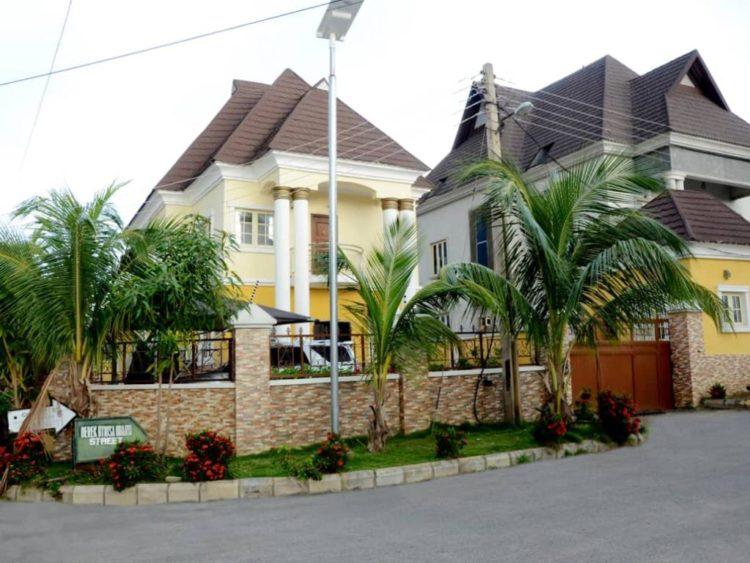Inflation and market uncertainties have forced most real estate project developers to re-price the earlier agreed building contracts, thereby, slowing down pace of project delivery dates, LEADERSHIP has learnt.
Investigation revealed that building materials, equipment and other components critical to the built industry and delivery of infrastructural projects are rapidly witnessing price surge almost on a daily basis, a development that is causing rifts between real estate project owners and contractors.
It was learnt that there has been noticeable wide margins in the quotation prices at the point of consummating a building project and the market price during execution of such projects, a cost that most developers do not want to bear but would rather pass the differential cost back to the project owners.
Hence, there have been back and forth renegotiations of real estate projects, which slow down pace of work and prolong the delivery dates of such projects, it was learnt.
This only affects ongoing projects, it is equally hiking rentage of houses and offices in urban areas of the country.
In recent times, cement, sand, aluminum materials, roofing materials, among other building components are witnessing continuous price increase almost on a daily basis, affecting the appropriate costing of housing projects in the country.
To this end, sundry players in the real estate sector have expressed concern as property developers, contractors and construction business experts are grappling with the challenges of re-pricing contracts by evaluating cost and drawing out different quotation plan to enable them tackle market inflation of building reinforcements.
The sector is confronting precarious free fall of the naira and surging inflation, both of which have combined to disrupt commercial projects and, by extension, their delivery timelines.
Most groundbreaking projects have deferred delivery dates, such that contractors have speculated that they can’t deliver on the project due to surrounding cost of running construction companies.
“Most project sites are quiet, and everybody has adopted a wait-and-see attitude to construction. We have seen about 35 per cent increase in the cost of construction and, to cap it up, we see contract default from both sides of the contract,” Principal Partner, C23 Consulting Limited, Damola Akindolire, said.

According to him, developers are busily evaluating and re-pricing projects, and those that can be continued are being continued while those that cannot are being dropped, adding that inflation has impacted project delivery by 30-40 per cent while house prices are expected to go up 40—50 per cent in the short- and medium term.
Housing development in the country, he stressed, depends 70 per cent on imports, especially finishing materials, meaning that most projects which used N700/$ as benchmark, for instance, will have to delay given the current exchange rate of N850 and N900 to the dollar.
The inflation rate has been on a steep rise since the beginning of this year, peaking at 24.08 per cent in July, according to the latest figures from the National Bureau of Statistics (NBS), up from 22.79 per cent in June.
This, according to market observers, explains why, for several months, there has been a persistent increase in the price of cement and other building components, such as blocks and rings, in the building materials market. Also, prices of paint, reinforcement and sanitary fittings, sand, roofing sheet, tiles, and granite have increased by over 70 per cent.
Though this delay in project delivery squeezes developers, especially, those exposed to bank credits whose interests are running while the projects are stagnant, it has a broader negative impact on the market. This is because while supply is shrinking, demand is increasing, increasing sales and rent.
Experts estimate that, across the board, the market has seen about 40 per cent increase in sales and rents in the first half of the year up to the present moment.
Confirming the development, the CEO of Knight Frank Nigeria, Frank Okosun, said: “We have seen a sharp rise in house prices to about 40 per cent due to inflation, both for sales and leases. Newly built properties reflect the increase due to the spike in inflation.”
Okosun stated further that, on the supply side, market uncertainty, coupled with the rising cost of goods, has made stakeholders adopt a wait-and-hold strategy, leading to a slowdown, especially, for capital-intensive projects, which have left the capital to find its place in the market, for capital-efficient projects.
LEADERSHIP’s findings show that in Lagos, house rent has gone up in all the market nodes, affecting both new and old buildings. This is why a mini-flat (a room and parlour self-contained) in a Lagos community that used to go for N400,000 yearly has risen to N600,000.
Ayo Famakinwa, a civil servant who lives in Ojodu Berger, a Lagos suburb, told LEADERSHIP that rent for a three-bedroom flat has increased from N800,000 to N1.3 million per annum. In contrast, a two-bedroom apartment in Egbeda, another suburb, now goes for N800,000, up from N450,000 a year ago.
In highbrow areas, Lekki Phase 1, a one-bedroom flat, which used to rent for between N800,000 and N2 million, now goes for N1.5 million and N3 million. In contrast, a three-bedroom apartment currently rents for between N6 million and ₦8 million per year from N4 million and N7 million.
Other cities are also affected by the rent increases. In Delta State, two-bedroom and three-bedroom apartments in DDP phase 1 has increased from N700,000 to N1.5 million and N2.5 million to N3 million, respectively.
In Abuja, the federal capital territory, a 3/4-bedroom terrace house in Wuse that used to command N4 million as of 2020-2021 now goes for N6-7 million or more. The detached 4/5-bedroom house in Maitama costs N10-N15 million, but now landlords demand as high as N25-N30 million.



